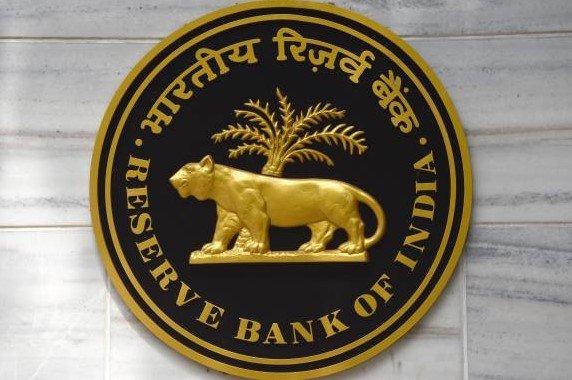The Reserve Bank of India (RBI) has slapped a total penalty of Rs7.13 lakh on four cooperative banks and a housing finance company (HFC) for failing to comply with regulatory directives. Leading the list is Utkal Cooperative Bank Ltd from Bhubaneswar, which faces the highest fine of Rs2.53 lakh for multiple violations. The RBI’s move underscores its continuing crackdown on governance and compliance issues in smaller financial institutions.
Utkal Cooperative Bank Bears the Brunt of RBI’s Enforcement
Utkal Cooperative Bank Ltd’s penalty comes after a statutory inspection revealed a string of missteps. The bank reportedly incurred capital expenditure without securing prior approval from RBI, violating the supervisory action framework (SAF). This isn’t a small oversight—it’s a direct breach of RBI’s strict rules meant to safeguard the stability of cooperative banks.
More concerning, the bank also failed to share customer credit information with three credit information companies (CICs). These CICs play a crucial role in maintaining credit transparency and preventing loan defaults. By not submitting data, Utkal Cooperative Bank left gaps in the credit ecosystem.
Additionally, the bank did not upload customer KYC (Know Your Customer) records to the Central KYC Records Registry (CKYCR), a vital platform established by the RBI to combat fraud and streamline customer verification. It also neglected to implement a periodic review system for risk categorisation of accounts, which is supposed to be done at least twice a year.
Such lapses put customers and the banking system at risk, highlighting why RBI took stern action.
Other Banks and the Housing Finance Company Penalised
Besides Utkal Cooperative Bank, RBI has fined Nalgonda District Cooperative Central Bank Ltd in Telangana, Kasaragod Cooperative Town Bank Ltd in Kerala, and District Central Cooperative Bank Ltd in Chhattisgarh. Each of these institutions faced penalties for non-adherence to RBI’s prescribed guidelines, though details of their violations were not extensively disclosed.

Altum Credo Home Finance Pvt Ltd, a housing finance company based in Maharashtra, also received a penalty. This move signals RBI’s vigilance beyond banks, extending its watchful eye to housing finance firms, which are crucial for India’s growing real estate market.
It’s a reminder that irrespective of size or sector, financial institutions must toe the regulatory line or face consequences.
Why RBI’s Actions Matter to Customers and the Banking Industry
Cooperative banks and HFCs often serve as the financial backbone for millions in semi-urban and rural India. Their functioning directly impacts credit availability and financial inclusion. So, any regulatory breaches here raise red flags beyond just compliance—they affect public trust.
-
Failure to share credit info can lead to unchecked lending and increase the risk of bad loans.
-
Skipping KYC uploads weakens anti-fraud measures.
-
Ignoring capital expenditure protocols can destabilize banks financially.
The RBI’s penalties serve as a stern reminder that governance standards must be upheld to protect the integrity of the system.
The Supervisory Action Framework and Its Role
The Supervisory Action Framework (SAF) is RBI’s mechanism to monitor and manage the health of cooperative banks. It requires prior approvals for significant decisions like capital spending and demands strict adherence to data sharing and risk assessment.
The SAF is designed to catch early signs of stress or mismanagement, allowing timely intervention. However, in cases like Utkal Cooperative Bank, violations show cracks in the system, which if ignored, could snowball into bigger problems.
| Bank/HFC Name | State | Penalty Amount (Rs) | Major Violation Highlights |
|---|---|---|---|
| Utkal Cooperative Bank Ltd | Odisha | 2,53,000 | Unauthorized capital expenditure, KYC lapses, CIC data failure |
| Nalgonda District Cooperative Bank | Telangana | Not disclosed | Non-compliance with RBI directives |
| Kasaragod Cooperative Town Bank | Kerala | Not disclosed | Non-compliance with RBI directives |
| District Central Cooperative Bank | Chhattisgarh | Not disclosed | Non-compliance with RBI directives |
| Altum Credo Home Finance Pvt Ltd | Maharashtra | Not disclosed | Non-compliance with RBI directives |
This table summarises the penalties and key violations. Transparency in these actions helps maintain sector discipline.
What This Means for the Future of Cooperative Banking
While cooperative banks have a long history in India, they often operate with limited resources and face challenges in meeting regulatory demands. RBI’s firm stand, as shown by these penalties, is meant to push them toward better compliance and safer operations.
But will smaller banks cope with these stringent rules? There’s a growing call for capacity-building and digital upgrades to help them keep pace. Without improvements, these institutions risk facing more penalties—or worse, losing customer confidence altogether.
RBI’s move is also a clear message to the entire sector: the regulator won’t look the other way on non-compliance. This sets a tone of accountability and should encourage stronger governance practices.








